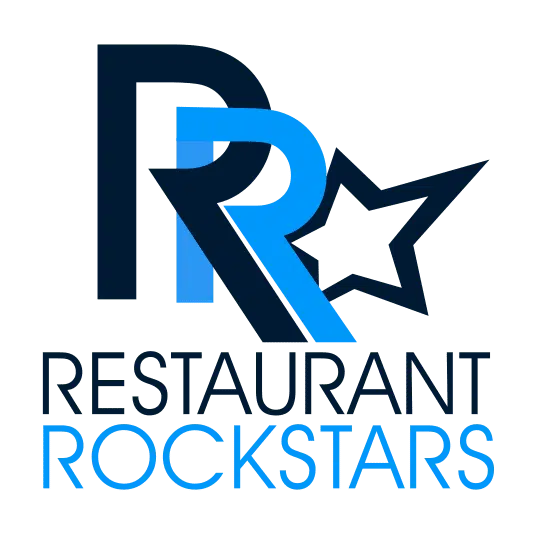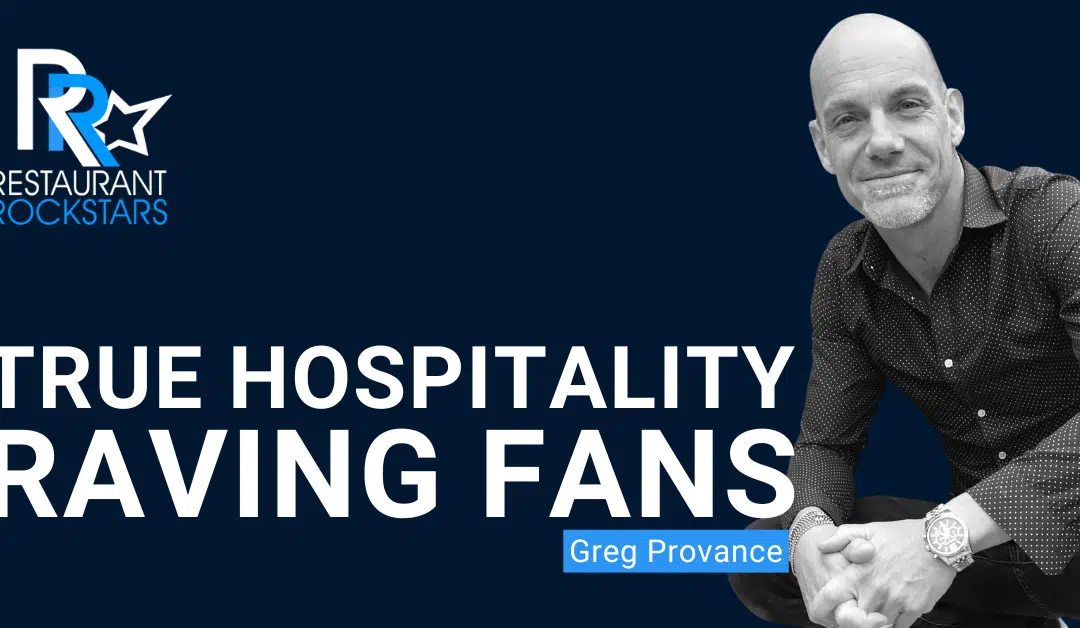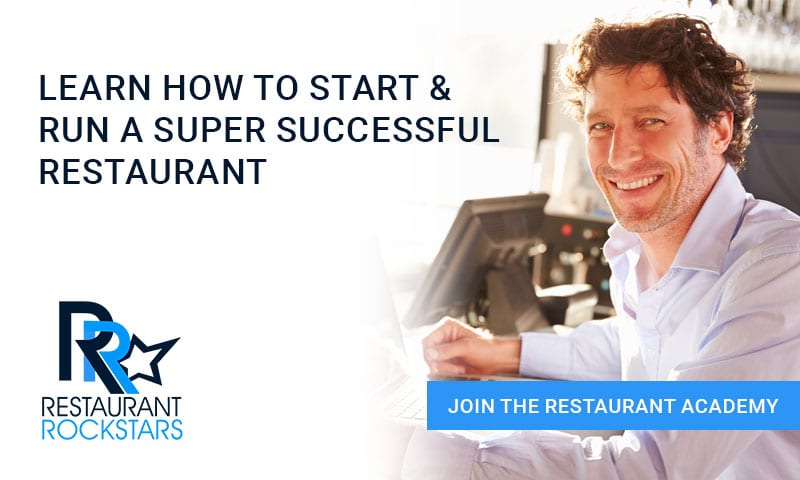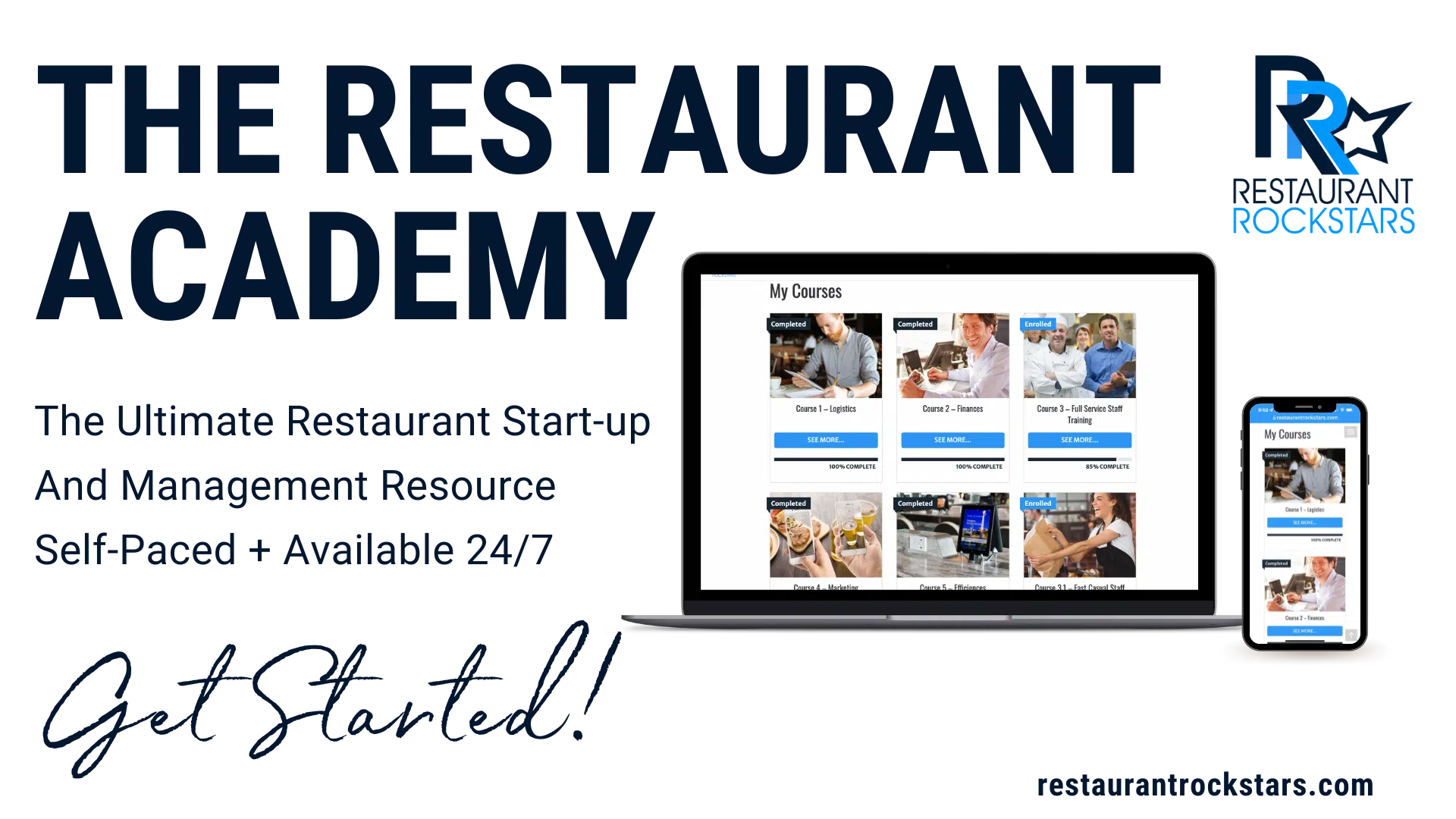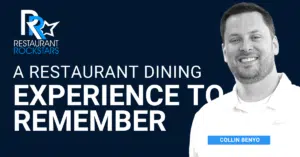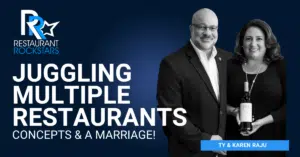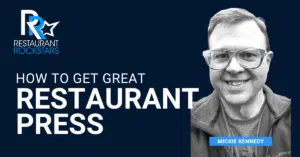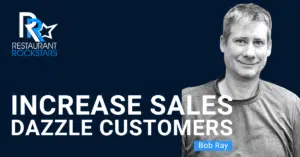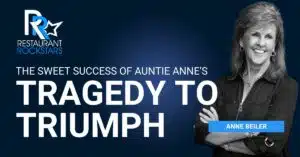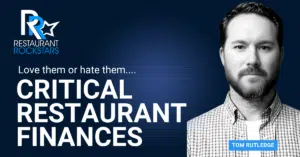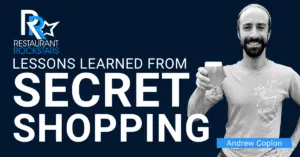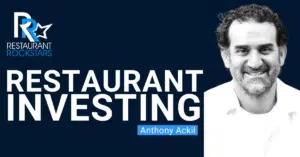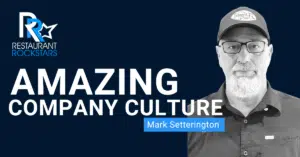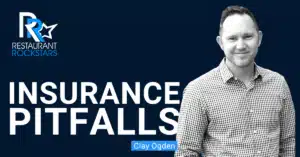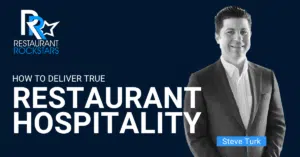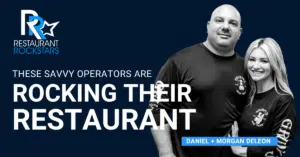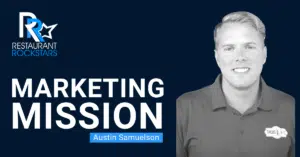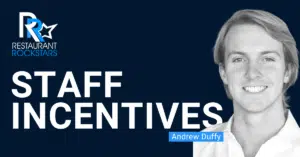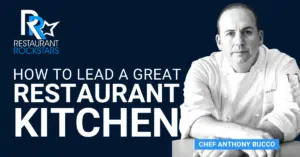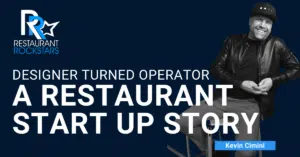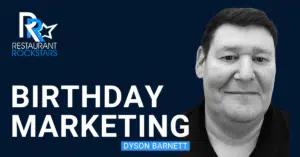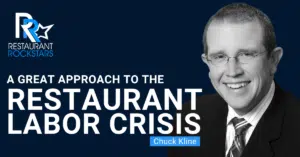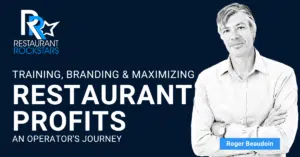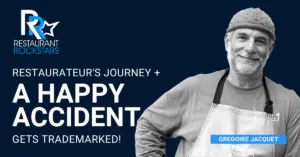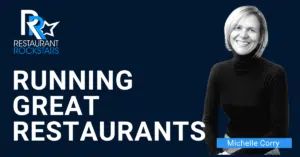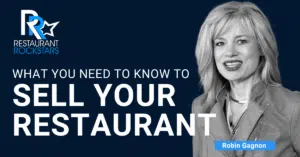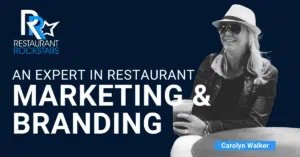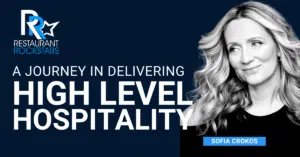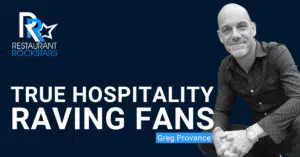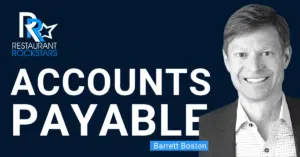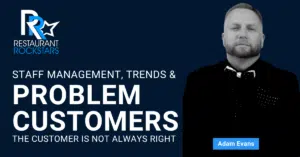Restaurant Rockstars Episode #311
How to Provide True Hospitality + Get Raving Fans
LISTEN HERE OR ON YOUR FAVORITE PODCAST PLAYER
Prefer to watch the interview?
Click the video below.
Hospitality drives our business and is the foundation that great guest service is built upon.
Your restaurant’s success and competitive advantage will always come from each member of your team providing genuine, caring hospitality. Do this and your repeat business, online reviews and profits will rise.
In this episode of the Restaurant Rockstars Podcast, I’m speaking with Greg Provance of GP Hospitality Partners, a true kindred restaurant spirit and expert on the fine points of hospitality.
Listen as Greg tells us:
- What hospitality really means
- Learnings from hosting some of the world’s biggest celebrities and stars
- How to create raving fans for your operation and a sense of ownership by the team
- The “Stock Market” analogy and how guests invest in your business
- How creating trust is your restaurant’s greatest currency
- Why true leaders empower, not delegate
And about Greg’s new book Butts in Seats, Creating Raving Fans for your Restaurant. A read that gripped me on every page and one I recommend to any service business.
Now go out there and Rock YOUR Restaurant!
Roger
Connect with Greg:
https://www.linkedin.com/in/gregprovance/
0:00
All I have to do is reach out and say, hey, if there’s something I can do to help you great, or if there’s someone else that I can point you to that can help you in my network, I’m happy to do that. And as we all band together, and that’s one thing I think that COVID has really taught a lot of us to do, and really come together as an industry and see what we can do to band together to help our each other and ourselves grow.
0:22
Hey there, welcome back to the podcast. Thanks for joining me, I’m a huge believer in the foundational word of our business that is hospitality, as well as exemplary guest service, which is what drove my business forward for over two decades. So I’m super pleased to have a guest today that literally wrote the book on hospitality. And it’s all about creating raving fans for your restaurant. I read this book, I was gripped on every page, and I believe it is required reading for any hospitality enterprise, if not any service business, so don’t miss this episode. It’s a great one. Stay tuned.
0:58
You’re tuned in to the restaurant rockstars podcast, powerful ideas to rock your restaurant. Here’s your host, Roger Beaudoin.
1:07
I call this the business of 1000 details, and you’ve got more important things to worry about than calculating and paying your monthly sales tax on time. Well, that’s what Davo comes in. Davo puts sales tax on autopilot for restaurants. devil uses sales tax data from your point of sale system to set aside the exact amount of sales tax you collect every single day, and then files it and pays it when it’s due. On time for your restaurant every month. Davo takes just five minutes to set up. And once it’s up and running, you never have to worry about paying sales tax again. Davo costs 4999 per POS connection per month, and your restaurant can try Dabo for the first 30 days free davo was created by a successful restaurant chef and owner who knows what’s important for your operation. Time is money and you’ve got more important things to focus on, like pleasing your guests. You can’t put a price on peace of mind. Why not try Davo for the first 30 days at Davo sales tax.com. Listen,
2:14
I am a huge believer that service is your restaurants greatest competitive advantage. But we all know that service takes time and commitment, dedication. Well, what if there was a training tool, a single tool that was completely customized to your restaurant brand your menu. Let’s start with photos of the plate presentations, ingredients, romance, notes, allergens, everything that’s important that your staff need to know to present and bring to life your menus for your guests. That includes your wine and beer list. specialty cocktails, everything at their fingertips. Imagine in the back of house that cooks, your new prep cooks or anyone can instantly look at the photos, elicited ingredients with prep times and cooking steps all the important things to produce each dish to perfection. Imagine there’s also table layouts of every dining space in your restaurant with table numbers and even seat numbers because we all know how important it is to deliver the right dish to the right guest This is a tool designed to enhance hospitality in your restaurant, not replace it. Learn more at srvnow.com. That’s srvnow.com Check it out.
3:21
Welcome back, everyone. This is the restaurant rockstars podcast. My guest today and I share so many of the same philosophies. And Greg Provance is my guest and he is the principal of GP hospitality partners. He’s also a fellow restaurant owner, he’s been through the trenches. He’s a restaurant consultant. He’s an author of a book that we’re going to talk about greatly today. Because I do believe it is a roadmap to the magic dust of running restaurants with me today. Mr. Greg Provance, thank you so much for being with us. Greg, how are you today?
3:51
I’m doing great. Thank you so much for having me, Roger. It’s it’s it’s an honor to be here truly is.
3:56
Well, I truly and heartily believe that this episode should be listened to by everyone because we’re gonna they’re gonna get so much out of it. So many things are gonna come out that are immediately actionable ideas they may have thought about, but may not have implemented. But it all begins way back when so take us to the beginning of your introduction to the restaurant business and what did you learn and where have you been since and how did you get so inspired to do what you do now?
4:23
Yeah, no, thank you. Wow. Yeah, the restaurant business started for me pretty early on. My very first summer job was at Popeye’s chicken at 14 years old. And pretty sure the minimum wage back then was about $3.35 an hour. So that will tell you maybe how long ago that was. And, you know, it was one of those things where, you know, as I was a kid, I just wanted to get some money to buy a surfboard and you know, kind of dip my feet into employment and it was awesome. I mean, I got to work with my friends. We were You know, we worked late nights back then, you know, the place was open till 2am on the on the kind of the resort strip. So I work into like four in the morning like cleaning like greasy vats from, you know, fried chicken all day and, but we had a blast, we had so much fun. And so that was my introduction into the restaurant business. And, you know, you, you would think maybe something like that could turn somebody off, but I got really jazzed by it. And then since then, or from then, you know, pretty much every job I had, going through high school and you know, into college, and in later years was really, in restaurants and hospitality. You know, I don’t think I would have ever really done so well in like an office situation or something like that. I’m now kind of looking back, but you know, I got to be, you know, a valet at a at a cool resort, you know, I got to, you know, bussed tables, and then learn how to 10 bar. And, you know, that was actually really cool. When I started learning how to 10 bar, I thought like, you know, it’s kind of a kind of a, you know, chess pumping sort of moment, you know, I was 18 years old working at a raw bar, shucking oysters, and the bartenders would keep me after work and make them, you know, have me make drinks for them, you know, and learn how to bartend that way. And, and so, um, you know, later on, I actually actually went to went to college for a couple years, and then I dropped out, because there wasn’t anything there that I could really sink my teeth into wanting to do long term. And I had an opportunity to join a rock band and play music, that’s cool. I did that, and I’m sure my parents love that choice. But, and then I became actually became a professional actor for a number of years. And so, of course, while you are pursuing that type of dream, you know, working in restaurants is how you make money, you know, and so, I was continually developing this skill, working all these different positions through restaurants, not knowing that one day, I would rely on it as a career. In fact, I in those days, I would probably tell you that becoming a restaurant manager was like the kiss of death, because it meant that I had failed in my acting pursuits, and everything else I figured, you know, if that, if that’s what it came to, then, you know, you know, I might as well just, you know, go away now, but it was a, it was some time, you know, when my kids started, you know, sprouting. And I started to realize, wait a minute, I might need something a little more stable in my life to provide for my family. It was then that I decided to, you know, make a shift in mindset and really kind of make the restaurant industry, you know, a pursuit, and I could see a career start to potentially develop there, I didn’t know what it looked like, at the time, or it could look like and I still wasn’t really good on the idea of just being a restaurant manager, the rest of my life. Although it’s it is, it’s a worthy profession. You know, I just just kind of went headfirst into it. And, you know, it was, it was then that I really, I think I really started to absorb what the industry had to offer, you know, and really start to take to heart, the intricate details and everything that goes into becoming a restaurant tour and giving a great experience, specifically the art of hospitality, I really got kind of drawn toward this idea of, you know, being part of people’s life events, and really taking that as actual responsibility. And not just okay, I show up to work and I serve some drinks, and everybody’s good. It seemed a lot more than that to me. And, and that’s the part I kind of grabbed on to and I think that’s really at the heart of what drives me now.
9:02
Well, food, of course, is the universal language, and it’s what brings people together it is such a unifying force in a damaged world. And clearly these are horrible times, but I think restaurants and hospitality and food are healing forces in otherwise uncertain, you know, really dangerous times and some courses. You mentioned, hospitality, let’s I mean, that word is literally the foundation of this business and everyone that means different things to different people. But could you give us your definition of what hospitality truly means?
9:35
Wow, that’s a that’s a great question. And honestly, like I’m, I’m quite shocked at how we are in an industry that is really based in hospitality and how few businesses in general are able to really embody what that means, especially in our industry. You know, hospitality has a lot of angles to it. For me, but at the heart of it really is the heart. Okay? It’s it’s a sincere, caring desire to want to be of service to someone else. That’s great. That is absolutely, yeah. And so, I mean, everything kind of stems from that, right? If I, if I really care, and that colors, everything else that I do all the decisions that I make all the actions that I take. But if I don’t, then you know, it’s superficial. And I’m just kind of going through the motions of service, which I see is kind of two different things.
10:33
It’s so important to transfer that basic concept to each and every team member, whether front of house back of house, whether they interact with guests or not, they really need to understand that word in its most simplistic form. And I think you defined it beautifully. But know what that really means. And I know that, you know, we’re going to talk about your book in a moment, but it talks about the personal, it talks about sincerity, it talks about emotion, and it talks about entertainment, and you combine those four things together. And that is delivering experiences, not just food and drink. And I think that is really what we’re doing. And and it’s almost a paradigm shift. Because in your consulting work, I know you ask a lot of questions, when you’re first getting to know a client, I do the same thing. And one of the key things that I try to differentiate is running a business versus running a restaurant, and selling memorable dining experiences and consistency, and good times versus selling food and drink. And that’s a paradigm shift. And I don’t come across to many restaurant owners that really think of it in those terms. But if they do, and if they can somehow translate the, you know, that sort of those tenants to their their team, then the hospitality will ultimately rise itself. You know, I learned a long time ago, and I forget where I’ve been heard this, because I certainly didn’t, I didn’t invent this or coined this term, or this feeling or definition of hospitality, but it’s always stuck in my head. And I trained my staff for two decades, hospitality is absent when something happens to the guest. And hospitality is present when something happens for the guest. And it is that simple. And we talked about that on a daily basis. And I know you’re a huge advocate of, you know, of creating this sort of an atmosphere of leadership, by example, and all those things that are so important running restaurants, but that’s beautiful that we just laid the foundation of hospitality. And now we’re we’re taking our audience on sort of a journey of, of what running really great restaurants is about and what our guests are looking for when they come into our restaurants and, you know, competitive advantages, because we don’t need to tell anyone listening how competitive this business is. And if you’re still standing after the pandemic, and going through all the turmoil and upheaval in your business, and you’ve been beaten up pretty bad. I mean, our goal with the podcast and I know your goal with your clients is to reignite that passion so that people really dig deep, and really revisit why they got into this business, what it means to them the pride they have in their business, the pride they have in their people and somehow translate that to the staff so that the staff trans or I should say the team, and then the team transmits that to the guests. So you know that’s that’s really what what we’re talking about here, isn’t it?
13:17
Very well said about yourself. And I would love to maybe use that last line the to the guests versus for the guests thing. If it’s not copyrights do
13:25
i Yeah, it’s not I well, I don’t think it is. But again, I take no credit for it, I just take credit for using it for over 20 years. So I heard it a long time ago. But it worked for me, it resonated with me. And my my team really got it, you know, and I want to talk all about delegating versus empowering and we’re gonna get into all that. But let’s let’s talk about GP hospitality partners. Tell us about how that came to be tell us about what you specialize in how you help your clients. And then I also want to know about your, you know, your involvement in restaurants to this day, and then we’ll get into your book because the book is fascinating.
14:00
Yeah, so I so GV hospitality partners came out of the desire for me to want to, basically I really wanted to start having an ownership stake in restaurants. But I didn’t necessarily want to go run out and open my own standalone restaurant, because I knew what that entailed and all that. You know, it’s once I started working my way up through management, and really trying to make a goal I’ve actually made a goal of my of my career to learn as much as I possibly could about the industry, through the experience of every position that I could possibly work through management up to executive level, you know, general manager, director of operations, and then hopefully, you know, ownership. So with that, I’ve also had a very entrepreneurial spirit. I’ve also I’ve always loved the idea of having my own business or businesses and kind of having a A lot of kind of balls in the air. When I was in Los Angeles at one point, I kind of did a little side gig and I opened a cocktail design company in Los Angeles back when craft cocktails really weren’t quite a thing yet in LA, they were, they were taking off in New York, but they hadn’t quite seen la yet. Nice. And so I started designing, you know, cocktails for events and parties. And, you know, got to meet a lot of cool celebrities and that kind of stuff and worked for some liquor brands and developing and that kind of thing. And that, that taught me how to, you know, kind of be in business for myself within the industry. And there are a lot of facets to the industry, there’s so many other ways to look at things. And that was a such a cool thing. And so I think that kind of fueled this desire to have a business of my own, but I didn’t quite know what it looked like. And so, after a good tenure and executive leadership with a great restaurant group here in San Diego, the Cohn Restaurant Group, family owned group who has 30 Plus restaurants here, mostly in the area, all different concepts, I credit them for a lot of what you see in the book, and really developing that sense of what hospitality truly means. Because here’s an organization that just does such an amazing job, really executing on that vision. And so, as I was working for them, I started having people coming to me going, Hey, I need help with this restaurant, I need help with that restaurant. And they trusted me because I was in a leadership position with this particular group. And so they saw that as me as somebody that could could help them if I was willing. And so I started kind of, you know, lending my expertise, I guess you’d say, to people that were starting out and trying to scale. Most notably right now ever bowl, I think, is one of the is one of the ones that I mentioned in my book, they started with one small craft superfood location in here in Poway. And now there’s over 250, I believe, franchises nationwide. And as as I was kind of going through that process, and helping these guys grow, I realized, wait a minute, I’ve got, I’ve got something to offer, I’ve got something to offer, the community that we are all part of. And so that’s when I started thinking, Okay, well, maybe I should start consulting, and advising and coaching, or whatever I can possibly do to help these restaurant owners that are either just starting out or just, you know, wanting to take their one or two locations to scale or franchise or whatever it may be. How can I help them and really, what it boiled down to was just putting my hand up and saying, Hey, if you need some help, I’m willing, and I’m able, and I’d be happy to spend some time with you and look at your books, or look at your systems or look at your problems that you’re having, and see if I can provide some solutions to help you with that. And that simply is what started I just started doing before I even had a business around it. And then it came time to get serious about and say, okay, am I gonna, I’m gonna go out on my own and really make this a thing and, and then COVID happened. You know, I made the decision to make the leap and go out on my own. And then COVID came down like maybe three weeks later. Fortunately, I had a great client, who was opening a brewery and needed the help. And I engaged with them for you know, eight, nine months, and worked really hard to get their whole team together and all their systems in place and get that beast of a brewery up and running. And they’re hugely successful today, I’m so proud to say, the Oscars brewing company up in Temecula.
18:43
That gave me the platform by which I could kind of take off and do more of what I’m doing now. So, you know, just really, really grateful for the people and the community around you know, me that has been so supportive through that process. Because there’s, you know, you know, being an entrepreneur can be scary,
19:03
tenuous existence
19:07
it is but you know, there are I look at it like this, there are so many people out there to help, all I have to do is reach out and say, hey, if there’s something I can do to help you great, or if there’s someone else that I can point you to that can help you in my network, I’m happy to do that. And as we all band together, and that’s one thing I think that COVID has really taught a lot of us to do is really come together as an industry and see what we can do to band together to help our each other and ourselves grow. And so that’s, you know, that’s pretty much where I’m at now, you know, and, and, you know, just the opportunity to come on your show and hopefully somebody will hear something that resonates with them. I know I’ve been a fan of the show for some time and listening to you know, getting little bites and tidbits and stuff and it’s helpful. It’s great to to know that there’s that level of support out there if nothing else than just to hear Something needed here today, you know,
20:02
well, you know, Los Angeles restaurants, you spoke of Los Angeles, I lived there for three years and really enjoyed the experience, but so many people that are literally, aspiring actors and actresses work in restaurants while they’re trying to get their big break. And those la restaurants have an advantage because they literally have theatrical performers that are delivering amazing dining experiences for the guests, by virtue of it’s a practice role for their future acting career. And you were involved in that too. You know, you are obviously in that in that business. But so much of what you learned and practiced in that piece is now so beneficial and so foundational for what you’re doing now. And it’s so funny how, you know, we can’t see the future we can’t see around corners, but everything is a building block to where we ultimately get to, even if we don’t see it at the time, you know, you might feel like you’re spinning wheels in this and it’s not really working, but then suddenly, it leaps you forward in another career. And it sounds like that’s certainly done and done, you know, done best for you in that way. Yeah, yeah,
21:06
that’s exactly right. Yeah. You never know what’s around that corner or through that door. You know, it’s just got to open it up and walk in. Yeah,
21:15
you know, the book talks about celebrities. Now, you worked in entertainment, you worked in acting, you worked in restaurants, you bartended you opened a craft cocktail business, I mean, you’ve got really diverse experience. But you know, the book talks about working with certain celebrities, any interesting stories to share, like Madonna comes up, and Janet Jackson and Stevie Wonder and Tom Cruise, and these are a list people everyone’s heard of, but you obviously had some involvement with them and providing memorable events. So that’s pretty spectacular, too. But anything you want to share there. That was
21:46
fun, it was fun, you know, uh, you know, in, you know, once you win, if you live in LA long enough, you kind of get immersed and steeped in that Hollywood culture. And yeah, you’re running into your favorite person or whatever at the grocery store. You know, and, and that kind of thing. You know, I, my wife, ran into Antonio Banderas one day, and literally ran the stroller into his feet because she wanted to meet him. Yeah. It’s pretty funny. But no, I think the best story I think I can think of is I was actually I was catering a party at the owner or the president of 20th Century Fox Christmas party, whenever and imagine the list of people that were there. It was all a list actors and whatever. To give you an idea when you walk into the foyer when this guests were coming into the foyer, it was Natalie Cole was singing to the guests. Wow. Yeah. And so I was hanging out in the kitchen area getting ready for I don’t know, I think we’re gonna bust the tables. We had served for dinner or something. And there was this kid hanging out. And I kind of thought he was working with us, because he had kind of like a tux thing on or whatever. And I kind of went over to him. And I was like, Hey, how’s it going? You know? And he was like, oh, yeah, I’m doing well. I’m really nervous. And I kind of looked at him. I’m like, Why are you nervous? He’s like, Oh, yeah, it’s a tough crowd. And he’s like, Oh, I gotta go. And he goes out into this room. And he starts singing. And I realized, it’s actually Josh Groban. And he was just being introduced to the aliased. Crowd by David Foster, the big producer, and he was his big coming out debut. And then he was followed by Michael Boulais. And I think saying something like that. Unbelievable. Cool. You know, it’s one of those. You’re just kind of like, wow, and I’m pinching myself. And like, Is this really happening? But it was, it was a lot of fun. There’s a lot of those. Those days were pretty cool.
23:43
I’m gonna share a brief story with the audience and with yourself. Speaking of celebrity, so my wife and I and family, we lived in Sun Valley, Idaho for a little while after we sold our restaurants. And Sun Valley is also in a list community, a lot of celebrities there. It’s not uncommon to run into people randomly in the grocery store that everyone’s you know, seen and heard of. So they had these grandiose ski lodges there. And the resort is not a destination. Well, it is a destination. It’s not a day trip place. So there’s never really a big crowd there. But picture a middle of the week day, it might have been a Tuesday or Wednesday, I don’t know. But it was the middle of the week. And we’re in one of these spectacular lodges. And the lodges were broken down into separate dining areas. So obviously you’d go into the cafeteria doesn’t do the word justice because the food was over the top it literally take your food and you going to sit in a space. They have these huge fireplaces that you could drive a Volkswagen Beetle into you know, and giant chandeliers really elegant rooms. My wife and I are sitting in a room all by ourselves. There is nobody else in this room and the room probably seats 150 people or so. And we’re sitting in front of the fire enjoying lunch, and we’re just having a chat and all of a sudden a shadow comes walking across the room and we can tell someone’s coming in but we don’t look because we’re engaged in conversation and I don’t look until the last moment when the person is literally at our table. Well, and I look up, and it’s Arnold Schwarzenegger, and he crossed this room to come to our table. And I looked at him, like how you doing? And in that, you know, that Austrian accent, he’s like, very good, you know, and then all of a sudden, he did a total about face. And then he just walked away without saying anything else. And my wife says he must have thought you are Tim Robbins or something because somebody like Tim Robbins. But I mean, what happens? You know,
25:25
so they get to the choppa.
25:29
Exactly. So anyway, let’s talk about, I’ve always believed that the restaurant business is entertainment, it’s show business, and there’s so much depth to that, you know, and it’s like, okay, the door is open for business. It’s like everyone’s on stage, you know, and it’s really about dazzling the customer providing a wow factor, and really giving them lots of reasons to come back again, to share the stories on social media to give you positive reviews, it this business is literally entertainment. And I think there’s there’s a lot of analogies, well, first of all, the book is called butts in seats, okay, by Greg Provence. And we’ll talk all about how the audience can find this book. But we talked about the entertainment piece. And it’s as simple as Okay, the owner, or the manager is kind of like the director, producer of this performance, you know, and like anyone that interacts with a guest is really an actor or an actress on stage. And the whole experience is about creating an experience for the guests. And you do that in multiple ways, it starts with the personality of the team member that is interacting with the guest, whether it’s the host that greets them at the door, or it’s someone that crosses their path, while they’re on their way to the table, where it’s their server, their bartender their bus, or whatever it is. Okay, that’s the cast, right. And then everything that happens, every, every little element in the business of so many details is all about delivering a performance, an event, not just food and drink, you know, and I think that, that comes from your acting sort of background. But ever, I believe every restaurant should really approach it that way. Because it’s such a differentiator, it’s such a competitive advantage, to give better service and to acknowledge every guest as if they were the most important guests. And they’re a VIP at Lincoln Center. And this is the most amazing performance, even if it’s your restaurant, or your you know, your business wouldn’t I mean, I know you agree with that, but what you know,
27:27
100 100% agree with that. I mean, you’re you’re absolutely right. You know, I mean, and what you’re talking about, what I’m picking up on is a mindset shift for restaurant owners and managers really kind of get Thank you into, you know, it’s Yeah, and, you know, when you’re coming to it from that, when you’re sort of seeing it from that point of view, it changes how we do things, right, it changes our not only our perception of the business, but how we actually, you know, you know, guide our teams, how we just basically every decision that we make, that affects the guest ultimately, you know, and I think if we change that mindset, we get into this idea that really, it is about rolling out the red carpet for these guests. You know, I, one of the things I really feel very strongly about is when when somebody comes into our restaurant, or bar or cafe, or whatever it is, as soon as they make contact with us, they’re investing in us and somehow, you know, in some way, whether they’re calling for directions, or to see what, uh, you know, what’s great on the menu tonight, or they’re making a reservation, or they walk through the door to potentially sit down and dine at our place, before they’ve spent $1. They’ve invested something in us, and we now have the responsibility to make good on that investment. That’s where it starts, you know, and so, you know, this idea of how many butts Can I get in seats? And how much money can I get for it? Yeah, of course, we need to think about those things. But we really need to think of it in terms of okay, what kind of value am I going to give those guests from the very moment they step foot in our place? How can I start giving them value? Well, we can give them value through experiences through a smile, through attentive, you know, sincere, heartfelt connections, we can have a great you know, ambiance, and the right music, and smells, and sounds and those types of things. If those things are really thought out and cared for, you know, that’s going to come across to the guest as well, how we present our dishes and how we play everything. The care and love that we put into that process is going to come across to the guests, all of these things are going to be felt right here by our guests. And that’s the part that’s going to make them want to come back again and again and again. That’s the part that they’re you’re going to appeal to their emotion, you’re going to appeal to their sense of where their senses really, that’s where you get, I don’t want to say you get your hooks in people because that sounds negative but that’s where you embrace people. And you know, that makes them want to be a part to your tribe that makes them want to tell your friends Wow, what I experienced at this place was something special. And now I’m going to bring others into the fold, because I want them to experience it too. And that really is the heart of what we’re talking about here. And that’s, in my opinion, that’s how you build a successful business, a successful Empire successful, whatever. And, and also, it’s just kind of the right thing to do.
30:25
I think you you mentioned in the book that trust is the currency. Do you want to elaborate on that?
30:32
Yeah, so I, you know, speaking of, you know, investment, right, thinking, right, some return? Yeah, somebody puts, you know, somebody puts 100 bucks and a stock, they want to get, you know, maybe 10 20% Return be awesome, you know, and if they get that type of return, they’ll probably put another 100 bucks in another 100 bucks and keep going. But if investment starts to go south, and you’re in the red, what are you gonna do, you’re gonna pull your money out of that investment, put it somewhere else, right? Well, it’s same thing in the restaurant industry, or in any business, really, but in our industry, you know, it’s, you know, people are not just voting or, or, or investing with dollars, which they are. They’re also investing with their trust. And there were, they’re trusting us with their experiences with their life experiences with with valuable time that they’re putting in to us, they’ve got hundreds of other places down the street, they can go to, you know, I’m literally, why are they going to come to us? Well, because they trust us with their experience, whether it be a wedding, whether it be a business lunch, whether it be just picking up coffee on the way to work, because they know we’re gonna, they’re gonna get quick, great cup of coffee, whatever it is, there has to be a level of trust there. And that’s the currency that we’re dealing with. And then the rest of the other monetary stuff will come, the money will flow when they’re there, they’re going to spend the money. But trust is the real currency that we need to be mindful of.
32:01
Listen, I’m all about marketing. But believe me, very few marketing ideas today are fully trackable where you know exactly where the business is coming from. And you also know that it’s generating a positive return on your investment. Now, I no longer own restaurants. But if I did, this idea would be at the very top of my marketing plan. It’s all about birthdays. Everyone has a birthday, and they are a huge Let me repeat that huge source of business in your restaurant. Why wouldn’t you want to focus in on reaching everyone with a birthday in your area? Well, you can with the birthday club from fan connect, best part is they do everything for you. You get a turnkey marketing system that sends birthday cards in advance, inviting people to celebrate your restaurant from your area code, plus a sign up strategy for your existing customers, new business, repeat business, hire check averages and a massive customer database, you can get all this with the birthday club, check it out and sign up now at get fan connect.com/birthdayRockstar.
33:11
Let’s talk about creating an environment where our team thrive and that they feel engaged, you know, you go into great depth about talking about engagement and how you get people engaged. And there’s a really great story about a young lady that was sort of not so motivated in a current position. And she got shifted to another position, which she absolutely thrived in, even though her manager didn’t think that she had the right stuff to thrive in that position. So communication plays a part here, and recognition, rewards and all those things. But let’s talk about that word engagement, because I think it’s so powerful. And so critically important, pre pandemic pre labor crisis, and now more importantly, than ever, let’s talk engagement.
33:55
Oh, yeah, I think more than ever, you know, our industry has felt a definite shift. You know, it’s harder and harder, retain great talent. You know, it’s, it’s, it’s super, super important to engage our team members. And I call them team members and not employees for reason, because it’s a little more, you know, heartfelt, I think it’s great, you know, and I’m used to calling our kitchen teams heart of the house rather than back to the house. Because that’s really is kind of the heartbeat of the place, but definitely, you know, and again, it comes from that place, right? I mean, I’ve always felt like our team members are really our best guests, you know, if they are well positioned to give a great experience by feeling good about being at work and excited about being an ambassador to our brand and really behind what we do if they understand what the mission is and what their role is, is to to accomplish that mission. Um, you know, all of these things will lend themselves to a greater guest experience. And at the end of the day, if we’re not giving great guest experiences, we’re not going to bring people back again and again, right. So it starts with the people that are on the front lines. And I’ve seen so many times where, you know, you know, managers and operators are just so busy dealing with day to day stuff, putting out fires, and, you know, guest complaints, or, you know, the water heater broke, or whatever it is, you know, just operation going. The one thing that tends to get missed, oftentimes is sincere commitment to coaching and training team members, you know, even if you’re having a great pre shift, right, let’s use an example. Like, you’re having a great pre shift, and you said, Okay, guys, we’re going to focus on pre bussing our tables, today, we’re going to make sure every table is spotless, and the guest is doesn’t have anything in front of them that they shouldn’t have in front of them in a given time. That’s our focus, right? Great, everybody, good, let’s do it. And then the manager hits the floor, and then the night progresses, and everything goes, you know, pretty much as plan. But no one was ever really followed up on coaching about pre bussing during that shift, right? And then next thing, you know, you have a manager’s meeting, and the manager says to GM, well, Sally didn’t pre boss or tables all week, even though we’ve been talking about and appreciative. Right? So my answer to the manager would be well, did you coach Sally, where were you, when you notice this? Were you there present on the floor, helping her to understand what that truly means? And what those steps need to look like? And if Sally has been habitually, you know, not so good at this, why are we not having that conversation with it? Right? So there’s so it my point to this is it takes a lot of energy, and it takes a sincere commitment to really coach and train and support team members, and make them feel like they’ve got the tools they need to be successful. And, you know, it’s, it’s hard when you’re a manager, because you have a lot to do. But I would argue that if you make that your focus, and you really put a lot of our energy and focus on that alone, then you’re going to start to see your business is going to start to elevate, your, your team members are going to get better at what they do, the systems are going to be more streamlined, it’s gonna be easier shift for everybody, and everybody’s engaged. They’re all we’re all walking the same walk, we’re all talking the same talk, you know, and the guest is going to get an amazing experience as a result.
37:33
You know, we also can think of it in terms of let’s talk about leadership by example. And I know the book talks about leading by the broom, and you’ll explain what that means exactly. But one thing that really struck me was a similar example to the aspiring line cook that wanted to work the broiler station, you know, and he saw that as a real rock star position, and he thought he was ready to move up, but no one really trained this person in all the basics of that job. And that is a pressure cooker position, for sure. And you’re dealing with a lot of expensive product out there, and one steak burns and gets returned. And it’s a poor reflection on the restaurant, and the customer has a bad experience. And there’s a lot of cost in that steak. And, and this person was ready, willing, and able, not necessarily able, but ready and willing to assume the position just wasn’t coached trained. And, and sort of shadowed someone to teach them the ropes, you know, and that’s another prime paradigm shift versus the word leader versus the term manager. And I believe that anybody, especially new people in that position, or more in term, you know, are more inclined to manage, tell somebody what to do, and then get out of their way versus really lead by example, and demonstrate and nurture and develop. And this all takes time, of course, you know, when there’s a million things going on in a restaurant, but it is really the foundational element of the ultimate guest experience by providing every step of the way, and nurturing and developing people and then giving them room to fail and showing them how they can do it better. And then, you know, just monitoring performance, so that ultimately, they rise up in an organization, they are engaged, and they feel better about themselves. I mean, again, there’s another key learning from the book that just comes out crystal clear. And it is that paradigm shift and, and also the word delegating versus empowering. Those are two entirely different words. And I think that we’re delegating is you is misused because it’s overused, because again, anybody can tell somebody what to do. It’s the rare person that can empower someone and really develop them in an organization so that they thrive and that they’re engaged, versus just managing them, you know, are you go do that, and I’m a figurehead and I’m in charge and I’m the boss and yeah, this is how I want it done and go and, you know, and then they fail and you set them up for failure by being seeing that kind of manager versus a leader who empowers, you know,
40:04
agreed, yeah. 100% agree. Yeah,
40:07
yeah, you bring that to life so much, you know, with different stories in the book that, you know, we just instantly get it, and I can read this book, and then someone who’s aspiring to be in a management position will get so much out of that approach, because, again, you’re gonna get so much more out of your people. And it’s so important now, when it’s so hard to get great people and people are abandoning ship for any reason, oh, they’re paying me $1 more down the street or whatever it is. But the grass isn’t always greener. But, you know, you want to make sure that the grass is greener in your place by developing your people and really creating an environment where people can thrive and feel valued in the organization.
40:46
Absolutely. And I think in part of that is creating opportunities for them that they see that they have an opportunity to succeed or to learn a new skill or to grow in some way. I always tell people in an interview situation, when I’m interviewing somebody for a job, you know, one of the things I always say to them, if you if you have not, during your tenure with this organization, if you have not learned or grown in some way that I feel like I failed my job. You know, we’re, you know, if you grow the people, you’ll grow the business. And, you know, it’s it’s it really is a focus that I really wish more and more owners and managers would would, you know, take seriously. And that’s, you know, I think that’s one of the reasons I wanted to get that message out there. Because hopefully, they’ll they’ll see or hear something that kind of inspires them along those lines.
41:36
Let’s shift gears, let’s talk about critical finances in business and systems because you’re a huge believer in systems. And I’ve always thought of it as an exit strategy. And I know in other podcasts had mentioned that, you know, my definition is different from someone else’s definition. But there’s so many definitions exit strategy, but for an owner operator, maybe they want to ultimately sell the business someday, you know, but but in order to do that, you’ve got to build value into the business and make it as turnkey as possible for someone else to step in. Even if that someone else has no restaurant experience, and they just want it as an investment. You know, you’ve succeeded if you have a turnkey operation like that. Maybe they want to continue to own this business, but they want to franchise it. Maybe they want to start another entrepreneurial endeavor in a whole different industry. Maybe they want to spend more time with family and friends, these are all different exit strategies. But when you own a restaurant, unless it’s systemized, you can’t do any of that stuff. So, you know, so many things enter into that, you know, and, and critical finances is one, but let’s talk about the systems that you feel are most important to restaurants.
42:43
Wow, there’s so many, there really
42:46
are. There really are, but you got to start somewhere, you know, and I really want the audience to get this. Now’s the time to dig deep and rediscover and rebuild and, and really get my people behind me so that it frees my time to work. Well, you say you say work on your business versus in the business. And it takes time to do that you’re working in the business, but hopefully you’re working on it at the same time, so that in a reasonable amount of time, you’re not working in it anymore. It’s like you’ve built your dream team people, they’ve got your back, they’re empowered to recognize the rewarded, you’re paying them good money, and you can afford to do so because your business has grown because of the way you’ve delivered the experiences to the guests right? Now you can keep working on that business versus in it and you can keep improving it and getting it better. And I believe now is the now is there’s no time like the present to start doing this stuff. You know, yeah, I
43:43
agree. I agree. Well, you know, one of the first things, you know, I’ll sit with a client on when I meet them, or once we go kind of through all of our initial questions and things is I want to see their financials. And, you know, it’s, it’s amazing to me how many owners, managers of restaurants a maybe don’t take inventory on a regular basis,
44:10
they think it’s okay, what do I need to order this week? Yeah,
44:13
yeah, are they’re managing their success by the amount of cash in the bank, versus looking at their expense lines and really analyzing the data on their on their p&l, much less, you know, looking at a daily sort of, you know, focus on what the sales are, you know, labor cost or, you know, their, you know, breakevens or whatever it is, you know, there’s there’s just so, so many, there’s so much data that we need to be looking at and making decisions around if we’re truly going to manage an operation. And so, you know, number one, just making sure that everything’s structured properly, you know, and really looking at, okay, does this p&l make sense? Or, you know, am I looking at a real good ratio or what I’m doing Am I able to tell what my ratios are between my labor costs my cogs, my prime costs, all my expenses? And is it is it a tool that I can use to make decisions around based on that performance. And then there’s, there’s more layers to that, of course, you know, there’s the, you know, the point of sale system and the reporting that you get from that. There’s the daily reports that you’d need to look at from sales and prime costs and those types of things. And then there’s systems of efficiency as well, right, that help the operation run, you know, whether it be, you know, prep checklists, or, you know, opening closing side work or whatever, they’re just so many different things and elements within the operation, that if we are sort of training to the process and training to the system and training our teams to rely on, you know, this is how we do these items, then you’ll start to get consistency in those areas. And I mean, I’m, I have to caveat this by saying, I’m also I’m a big believer in having standard operating procedures for most things. But I also have worked in an environment where, you know, I’m used to working in environments and I create environments that aren’t so reliant on every written piece of manual that we’ve also kind of got to make decisions for ourselves. And, and I like it when managers can can kind of think on the fly and kind of do things a little more organically. So I like to find that balance between, you know, a solid system that I can rely on. Yeah, but not being necessarily so rigid that it damages, potentially the guest experience. Yeah, flexibility is key.
46:47
There’s a balance there, for sure. I think I think that’s, that’s super important. Yeah, yeah. Do you run into clients, many clients who haven’t costed out their menus in a while? And if they have, it’s just not accurate? Or if they have, they’re just not doing anything with the data? Almost all of them? Yeah, see what I mean? I mean, those are, okay. So these are basic things we’re talking about here. So where I’m going with this is so critically important now, because now if you’re still standing after the pandemic, one, you’ve got to maximize every single sale that comes through the door. And two, you got to maximize, you got to make sure that you’re maximizing profit on every single thing that comes through the door. Because we’ve all seen restaurants, you’ve worked with those clients, I’ve worked with those clients, they’ve kept busy restaurants, and they’re turning their tables. And they’re scratching their head wondering, why is my bank account not growing? You know? And it’s? And the answer is simple. The financial systems just aren’t in place. They don’t know, like you said, the cost of goods, the prime cost, the daily break up, all those things are just basic formulas. But when we’re talking about menu design, I personally believe that there is nothing that will move the needle more forward than costing out a menu for maximum profit, so that every item in each category on a menu contributes a similar profit. And there isn’t this huge sweeping spread of profit all over the place where you suddenly find out, wow, my biggest sellers are my lowest profit items. And I’m paying my kitchen, the highest wages in the place to make everything. But yet, I’m losing dollars every time I sell this versus that when I could be making these dollars. And there’s so many things that we can do to adjust the menu, adjust the ingredients, portion, standard portion controls, there are a lot of restaurants out there that don’t have standardized portion control procedures. If they’re not taking inventory, they don’t know that they got a waste that after a spoilage problem, like all these things are impacting their bottom line, even though they’re filling their seats, you know, oh, yeah,
48:43
sorry. You’re right. You’re absolutely right. It’s funny, you mentioned portioning and all that, you know, I recently wrote an article on food waste. And it’s interesting how, you know, when you really kind of break things down things like cross utilization of product, making sure you’re, you know, you know, kind of checking things in and rotating things the right way and date labeling and dating, the food prep process. You know, what’s going into the trash just through prep? You know, I worked with a chef who he was fanatical about checking trash cans every time she came in to see.
49:17
Oh, yeah, I could tell you stories, losing expensive silverware. $1,000 of silverware goes into the trash. If you’re using nice silver, it’s like, yeah, and that’s, that’s where the training comes in. And that’s where a long time ago, like I believe in sort of educating the staff the team in the basics of running a restaurant because when I started 20 something years ago, I can’t tell you how many of my team members thought that every time I sold a $20 steak $20 went into Rogers pocket and he’s getting rich and we’re doing all the work. You know, and then I suddenly you know, I put it out on this giant flip chart one day in a training you know, and just the session with my staff saying look, okay, we sell the steak for 20 bucks, and it costs us x to put it on the plate, and it costs us so much in labor to, you know, do that steak. And then I’ve got to pay the mortgage on the building and I got insurance and I got payroll and cost of goods. And okay, that $20 Steak netted me about $1 profit, you know, if I’m lucky. Yeah. And that’s an extreme example. But you know where I’m going with this, we all know that this is a slim margin business. So if you don’t have the systems in place, there’s a lot of waste and inefficiency in an organization, even if you are filling your seats, and nobody’s in business to lose money. And these are hard times. So you know, it’s so important to have a basic grasp of this. But not only that, but translate that to the team. Oh, the busser was tripped in the kitchen and just broke like five of our dinner plates. So that profit just came off the next entree I sold because we just lost five dinner plates. And it happens day in and day out and restaurants, the stuff that goes into the trash, this the perishability the waste, it’s a risky business. So you got to be on top of these details. For sure.
50:59
Yeah. 100% agree. And I love that you share that with your teams too. You know, I mean, they that’s another point of empowerment and empowers them with the knowledge and understanding of how they’re affecting the operation when these things happen. So I think that’s great. Yeah, it’s
51:13
it’s, but it’s fun. I mean, again, this is a business of fun, and you want your people to have fun, and you got to have a healthy competition. You know, it’s all about, it’s all about going out there. I used to tell my team, you know, go out there like you were shot out of a cannon, because in college, I had a public speaking class that served one of the most important classes I ever took in life as public speaking, but back then I never would have thought it was important. And our teacher, obviously, our instructor, Professor, whatever you want to call them, made it very clear that every single time that we gave, we got up and spoke in front of the class, we really had to be polished, we really had to deliver a message we really had to prepare and think it through. And then we really had to deliver it with poise. And the one thing that really stuck in my mind was the last thing they said before, the very first performance that we all had to give us go out there like you are shot out of a cannon just enthusiastically deliver your message with poise with confidence. And regardless of how many people are in the room, and that stuck with me, and I train my staff in that it’s like every time you approach a table, use your unique personality to bring the food and the service and the ambiance to life dazzle the public because it is entertainment, give them lots of reasons to come back again. But most importantly, have fun and make friends. And pretty quickly, it’s like in restaurants, if you do this, your customers will come back and request those team members by name because they had such a great time last time. And they will recommend their friends go in and ask for these people by name. And that is a competitive advantage as well use and you use the word brand ambassadors in your business, which I wholeheartedly agree with team members are extensions of your business. And, again, a paradigm shift, don’t run a business build a I’m sorry, don’t run a restaurant, but build a brisk business and build a brand. And then train each individual person to be a brand within your brand. Right and to use that person and there therein lies more the theatrical thing we’re talking about. But it’s like this is powerful stuff that brings people back and just really makes your operation stand apart from the competition. And that’s really what it’s about in a really challenging business during really challenging times when, like you said guests have 100 other choices to go to.
53:35
Certainly do. Right.
53:37
So how do we get your book? Greg? Tell tell the audience where they can find this.
53:42
Yeah, easiest way is Amazon just butts into seats on Amazon, it’ll pop up and, you know, it’s, it’s pretty readily available. They’re really easy format as well as great or softcover. Yeah,
53:57
it’s not only practical, solid advice. I think earlier in the podcast, I really call that a roadmap to the magic dust running a great restaurant, but it’s also an entertaining read. It’s fun to read, the pages just magically fly by and it’s just really fun to read this book. But every word and every paragraph really gives you actionable ideas to help you run a stronger, you know, more efficient business and to really empower your team and that’s really what I love the most about it. Because again, that is the foundation of our business. What’s your URL for GP hospitality?
54:33
Oh, that’s real easy GPhospitalitypartners.com It’s kind of a mouthful, but that is
54:40
pretty easy. Yeah, fantastic. Well, I certainly want to give our audience you know, a way to contact and connect with you and to and to get the book of they’re interested and
54:50
I’ll put that out there. You know, honestly, if you just anybody that wants to contact me through the website for any questions, no obligation, no strings. I’m happy to answer any questions that you might have that any challenges you’re having in your business, we can have a conversation, no problem.
55:05
I have a last question for you, Greg. We’ve talked a lot about operators out there, they’ve been beaten up pretty bad. And it’s like, what’s your best advice to those that are still running restaurants today, to get the most out of there, people get the most out of their operation, and really just set the place on fire and really dazzle their guests.
55:25
You know, I think I think the biggest thing, you know, when we’ve been, you know, kind of challenged this way for so long. Sometimes it’s just, it’s kind of hard to see the forest for the trees, some days, you just kind of wake up and you wonder, why are we doing this still? Why am I hanging on, you know, just, you know, what, maybe connect to that reconnect to the why, you know, reconnect to why you started this to begin with. So many people, I think, you know, spend a lot of time working on the business plan, and they get the vision down, and they see the whole thing unfolding. And then when we get, you know, bogged down in the mire of reality of the day to day of the business, we just kind of get rode hard. It’s hard for us to kind of realign with that real sense of purpose and why we were doing this to begin with, right. But if you can connect to that, and really try to translate that towards what we’re doing, like you said, you know, kind of, you know, have that translate through our business to meet our guests needs, then I think, you know, there’s some hope in that. And I think there’s not just hoping that actually, there’s results in that, you know, you’re gonna see, you know, an upward trajectory of sales as a result, to be honest. So, yeah, connect to the why. Well, you’re
56:43
very inspired guest Greg, and I’m so happy that you’ve shared time with us.
56:48
I really appreciate the opportunity. Thank you so much. Definitely a highlight of my day. And
56:55
well, thanks so much to our audience for tuning in that again, was the restaurant rockstars podcast. We can’t wait to see you in the next episode. Stay well, everyone. Thank you, Greg, for being on the podcast you and I really share. You know what that true meaning of hospitality is all about and your appearance today obviously drove that home. I really appreciate all your insights, your experience your advice, as well as your new book, which we wish you the best of success with. Thanks also to the sponsors of this week’s episode Davao, the birthday club, serve the restaurant training app@ srvnow.com and the restaurant rockstars Academy. See you next time and stay well.
57:40
People go to restaurants for lots of reasons. What the customer doesn’t know is the 1000s of details it takes to run a great restaurant. This is a high risk high failed business. It’s a treacherous road and SMART operators need a professional guide. I’m Roger. I’ve started many highly successful high profit restaurants. I’m passionate about helping other owners and managers not just succeed, but knock it out of the park. You don’t just want to run a restaurant. You want to dominate your competition and create a lasting legacy. Join the academy and I’ll show you how it’s done.
58:18
Thanks for listening to the restaurant rockstars podcast for lots of great resources, head over to restaurant rockstars.com See you next time.
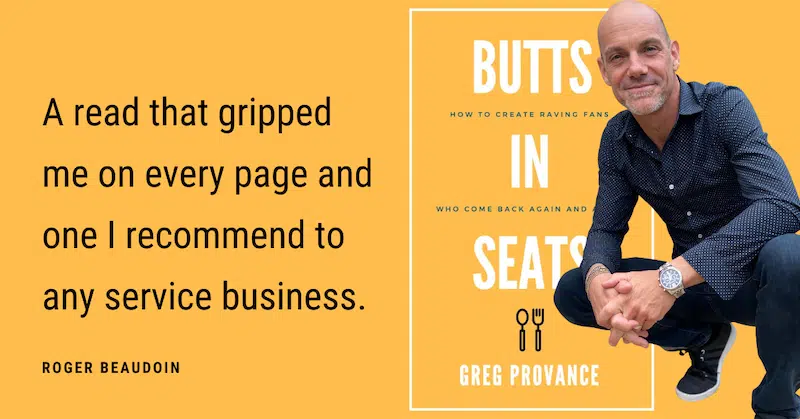
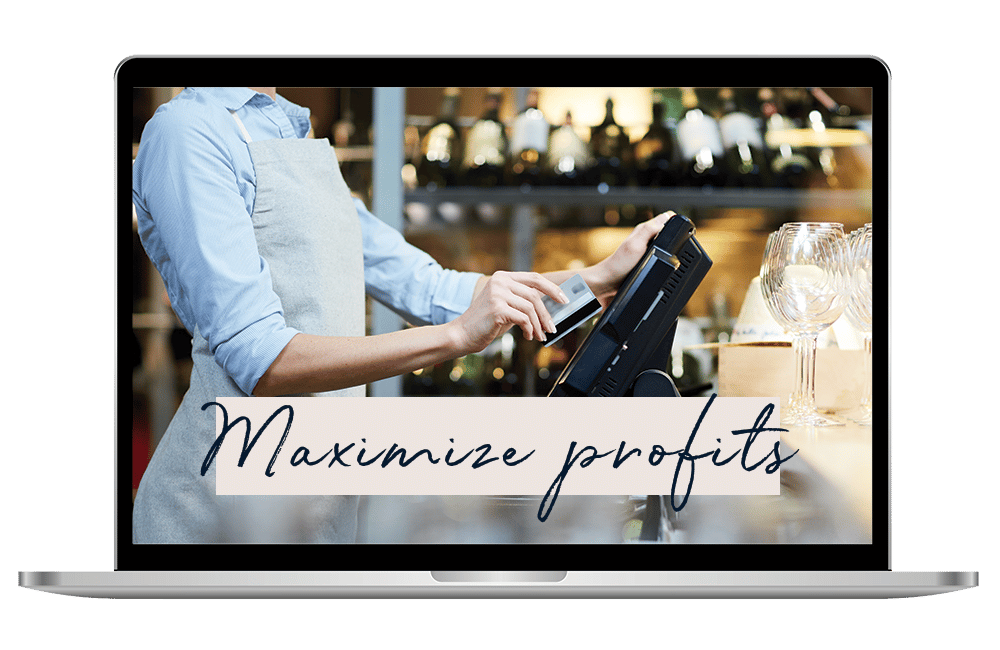
The three costly mistakes you could unknowingly be making?
Find out in this FREE guide and restaurant assessment specifically designed to reveal the unexpected hurdles standing between you and exponential business growth.
Thank You To Our Sponsors

Automate Your Sales Tax. Why Not Try Davo FREE for 30 Days.
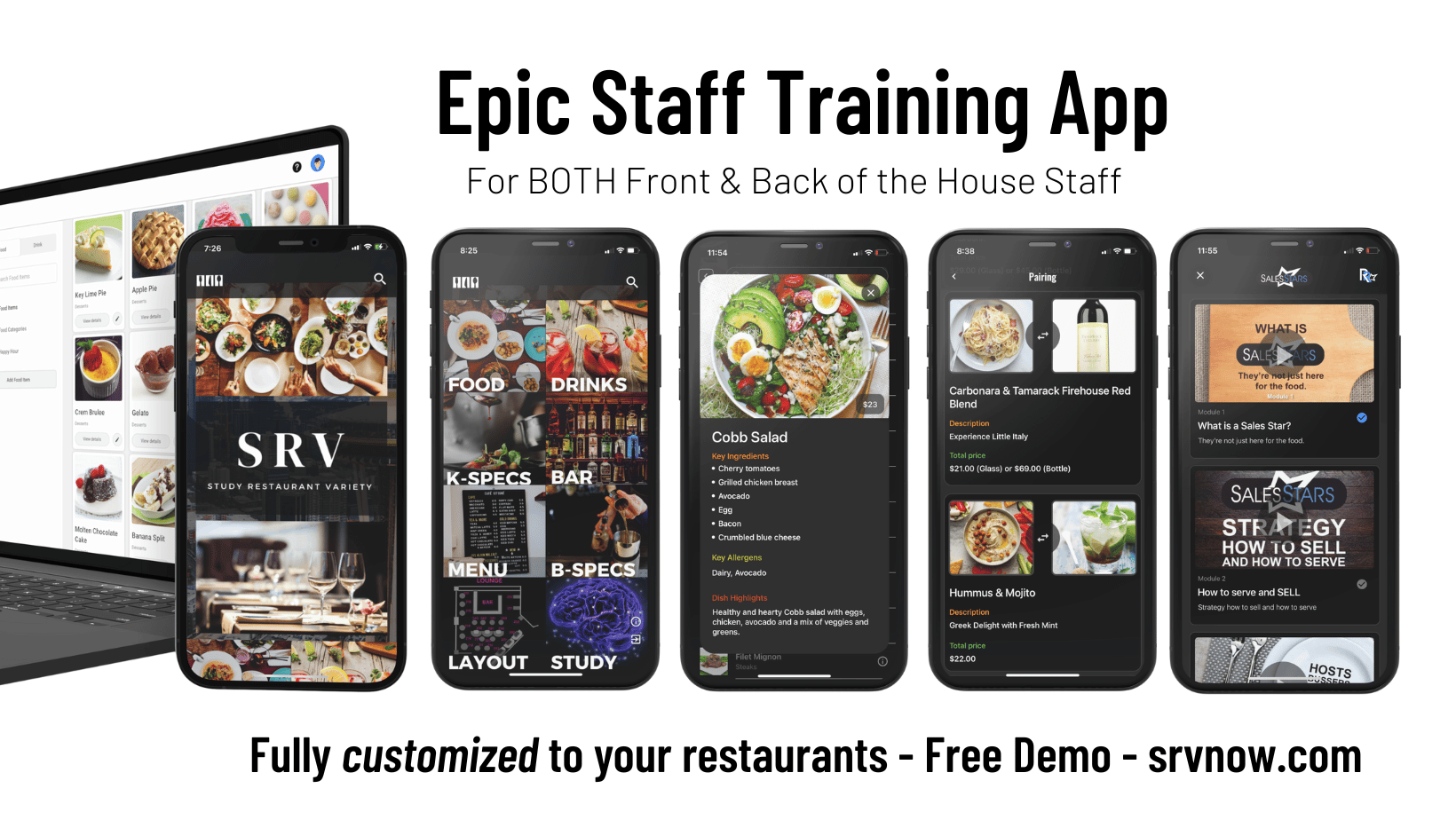
SRV teaches your team to profitably sell and accurately create the food and drinks at your restaurant.
Unlock Staff Potential and Maximize Sales
Did You Know That 7 out of 10 Adults Dine Out To Celebrate Birthdays?
You Can Easily Capture This Lucrative Business!
Want to become a podcast sponsor?
Please get in touch with Roger at roger@restaurantrockstars.com
